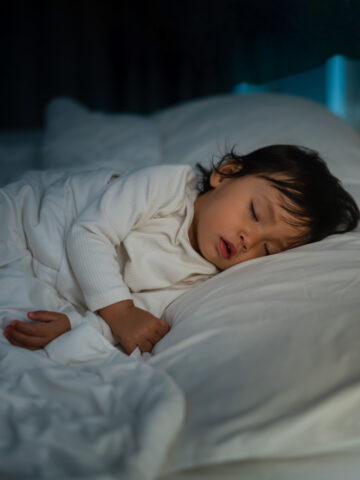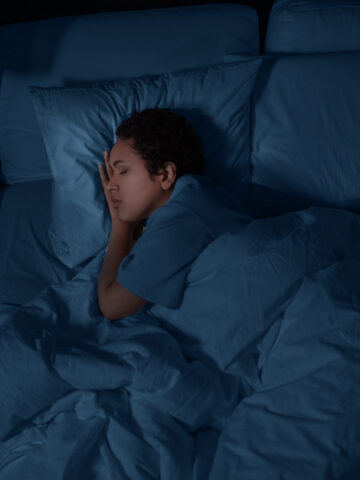By Dr. Anjalee W. Galion, CHOC neurologist
Losing an hour of sleep as we “spring forward” to daylight saving time can wreak havoc on sleep schedules this week, especially children who already struggle with sleeping problems. Due to their developing brains, children can be particularly sensitive to sleep deprivation.
According to the National Pediatric Sleep Foundation, about 71 percent of infants wake at least once, and 21 percent of infants wake up three or more times per night. Thirty percent of parents report their children have difficulty with sleeping – – across all ages.
Signs and symptoms of pediatric sleep disorders

Sleep -deprived children exhibit symptoms differently than adults. Adults usually experience general daytime sleepiness, whereas children tend to display sleepiness in a variety of ways, such as showing traits of inattention and hyperactivity that are sometimes mistaken for ADHD. Additionally, sleep deprivation in children causes physical stress, which can contribute to difficulty initiating and maintaining sleep. Many parents might recognize this trend when trying to keep their children awake until late at night, which can actually lead to children having trouble staying asleep and waking up earlier than normal.
Turn off the TV
The blue light emitted by all screens (TV, computer, smart phones, tablet devices, etc.) can interfere with the way the brain identifies day and night. The brain uses the eyes to give cues to lightness and darkness to set the body’s internal clock, also known as the circadian rhythm. Having “screen time” throughout the day, and especially at night makes it difficult for the body to identify day and night and can cause significant difficulty falling asleep or staying asleep.
The National Sleep Foundation found that children with TVs in their rooms are most likely to be among the worst sleepers. The presence of the screen, even if it is turned off, activates the brain and makes it more difficult to go to sleep and stay asleep. Children who get more sleep are more likely to read books as part of their bedtime routines, instead of time in front of a screen. It’s best to encourage children to enjoy reading in the few hours before bedtime.
Daylight saving time tips
Adhering to a consistent sleep schedule – as close as possible to a child’s normal routine – is particularly important during this time. As easy as it may be to permit kids, who don’t feel sleepy or can’t sleep as a result of the longer days, to stay up later, such a habit will disrupt sleep patterns. The use of blackout shades and a timed night light can serve as consistent cues for little ones, letting them know when it’s time to sleep and time to wake up.
Dr. Anjalee W. Galion is a CHOC pediatric neurologist who is also fellowship trained in sleep medicine. She is actively involved in pediatric sleep medicine research having completed National Institutes of Health – National institute for Neurologic Disorder and Stroke clinical trials fellowship. She has also developed protocols to improve sleep in children with autism. Dr. Galion is also trained in cognitive behavioral therapy for sleep disorders and has authored a book chapter on the evolution of insomnia from children to adults. She is actively involved with reading sleep studies and in the comprehensive diagnostic evaluation of children with all types of sleep disorders.





